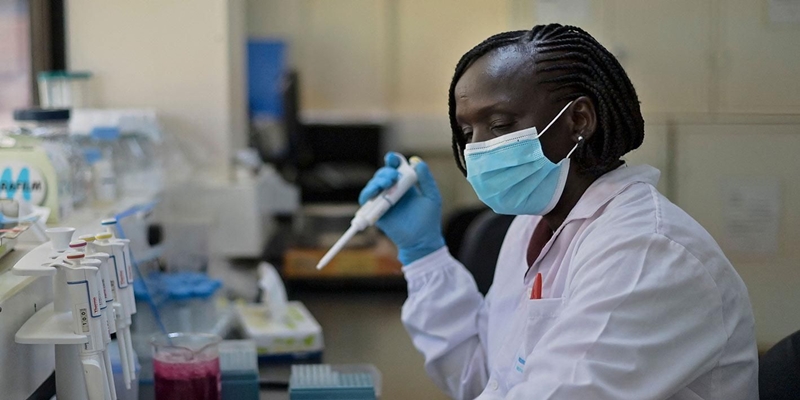Health Systems in Africa: Cultivating Resilience Against Future Pandemics

The social and economic devastation brought on by the COVID pandemic has triggered an era of sombre introspection into our public health systems, which have taken centre-stage since the crisis commenced. Experts agree that, given the increasingly globalised and interconnected world of today, future pandemics are inevitable and health systems are now faced with the challenge of dealing with COVID while achieving pandemic preparedness to ensure that we are able to weather any future crises.
While the pandemic has forced us headlong into The Fourth Industrial Revolution (4IR), even before COVID struck we’d started to see some dramatic shifts in the healthcare landscape. Trends like big data, AI, telemedicine, hybrid retail / medical centres and increased private investment into health, have been shaping the industry globally and are set to continue. Furthermore, the prevalence of outpatient procedures and the uptake of screening, testing and diagnostics in non-traditional settings, may see long hospital stays becoming become less common over the coming decade.
Dr Alex Coutinho, a Physician and Global Health Consultant and speaker at this year’s Africa Health Conference on the future of healthcare post-COVID, believes that market forces and mega-events that were already driving the transformation of the health sector on the continent pre-COVID - like urbanisation, privatisation, digitisation, education and gender equity – may have accelerated since the pandemic began and will continue once the crisis has abated.
With the realisation that the economic costs of a pandemic far outweigh the costs of investment into research, vaccines, therapeutics, and non-medical disease control strategies, many authorities feel that the COVID-19 crisis may mean increased investments in these areas in the global South. Given the need to ensure stable supply chains, some experts have also suggested that an increase in domestic manufacture of vaccines, pharmaceuticals, and medical supplies is likely and necessary. Other experts worry, however, that the future will herald worsening structural inequality as a result of COVID, as nations under pressure cut back on international aid, and prioritise their own economic survival.
“Well-financed multinational collaborations oriented towards building global health security and developing health and laboratory infrastructure where they are needed most are increasingly common. The Africa CDC collaboration with the US CDC and other global partners could become an example of coordinated, participatory global research”, comments Dr Coutinho.
In many countries, health budgets (as well as funding granted by international donor organisations) were in part redirected to prioritise COVID prevention, diagnosis and treatment and efforts. Dr Coutinho explains that these decisions were not taken lightly, and that policy makers’ rationale of resource reallocation needs to be centred around strengthening public health systems overall.
He adds that in places like South Africa, policymakers are ‘between a rock and a hard place’ in having to balance ongoing priorities like HIV and TB alongside COVID-19, all of these amidst a backdrop of massive unemployment, economic insecurity and an embattled education sector which have been severely affected by pandemic.
Dr Coutinho believes, however, that countries like South Africa, Kenya and Egypt may re-emerge in a strong position post COVID. “As the international tourism market reopens, there will be a great global thirst for post-lockdown travel, and nations with high vaccination rates as well as reliable and high-quality health infrastructure in place, will likely encourage international visitors, without the need for quarantine on arrival, and assurance of top level critical care in the event it is needed.”
“Looking into the future, countries like Kenya and Rwanda look poised to adapt quickly, having taken learnings from countries like SA and Mauritius on how best to survive the epidemic, shift focus into economic recovery and into their public and private health systems”, he says.
Dr Coutinho believes that pandemic preparedness must be a priority and ongoing for the foreseeable future. “Much scientific work has been done around future pandemic preparedness. The One Health concept takes a holistic, integrated, trans-disciplinary approach that extends far beyond narrow human concerns, encompassing interlinked aspects like animal health, environmental health and social well-being”, he notes.
The current pandemic has highlighted the disproportionate burden of infection borne by vulnerable and marginalised groups. In some places the pandemic and its after-effects threaten to stall or reverse development gains achieved thus far. Paradigms like One Health acknowledge that inequality is a major determinant that can restrict access to healthcare, and that any sound global UHC strategy needs to be equitable, inclusive and community centric.
“In the end, the resilience of our people and our health systems is not just about COVID and infectious diseases. It’s about economic recovery, good governance, the principles of UHC, and ensuring that everyone has access to quality care”, concludes Dr Coutinho.
Courtesy: Africa Health
